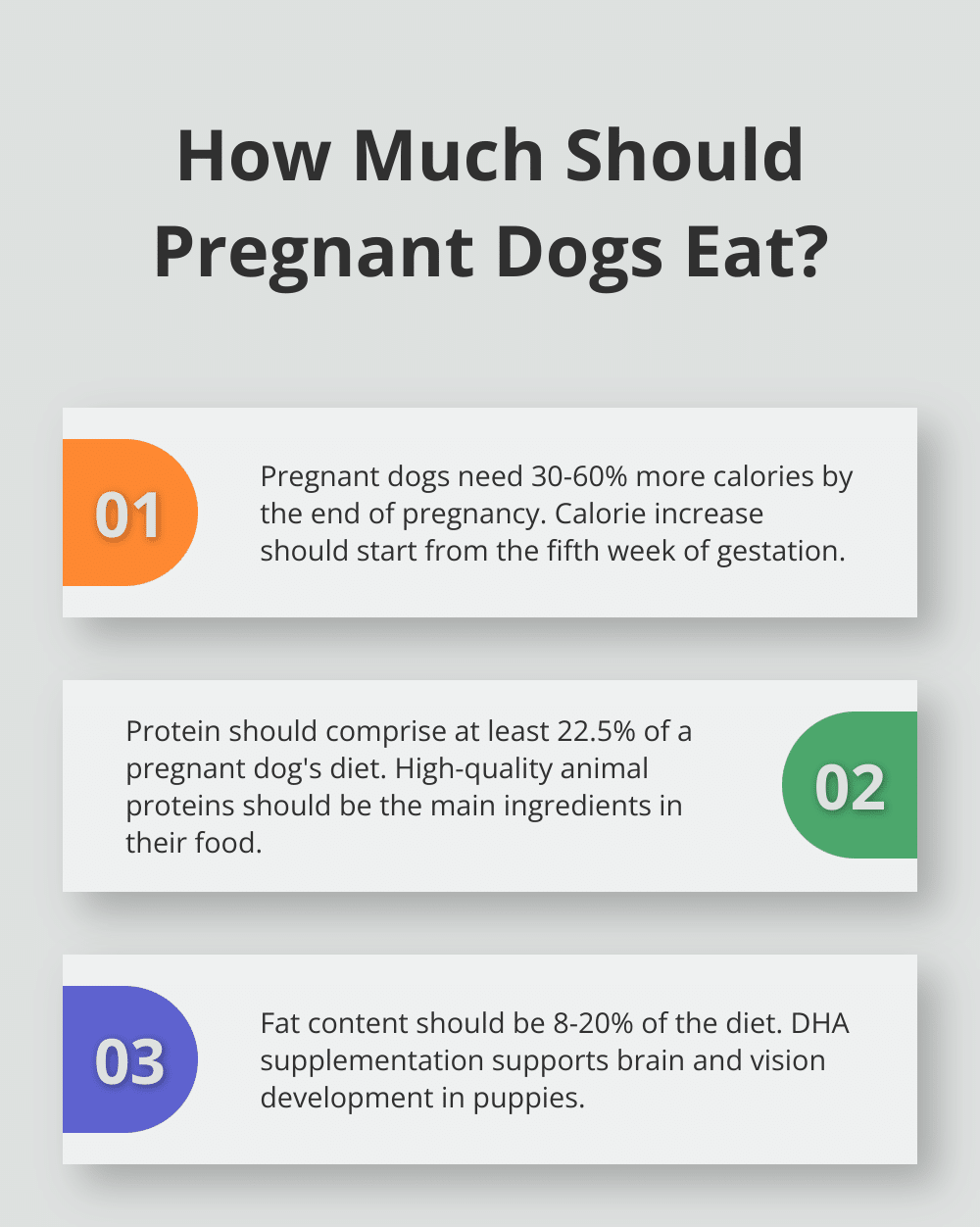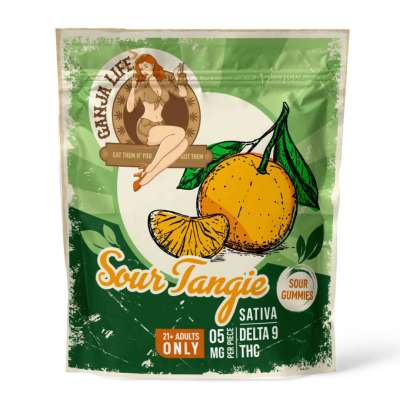
www.dogingtonpost.com
Nutrition for Pregnant Dogs: Essential Guidelines
Proper nutrition for pregnant dogs is vital for the health of both the mother and her developing puppies. At DogingtonPost, we understand the importance of providing expectant canine moms with the right balance of nutrients during this critical time.
In this guide, we’ll explore the essential nutritional needs of pregnant dogs and offer practical feeding strategies to support a healthy pregnancy. Whether you’re a first-time breeder or an experienced dog owner, this information will help you ensure your pregnant pup gets the best possible care.
What Do Pregnant Dogs Need to Eat?
Calorie Requirements for Expecting Canines
Pregnant dogs have specific nutritional needs that evolve throughout their gestation period. As the pregnancy progresses, a dog’s calorie requirements increase significantly. Veterinary nutritionists recommend that pregnant dogs consume about 30-60% more calories than usual by the end of their pregnancy. This increase should not happen all at once. Instead, owners should gradually increase portions starting from the fifth week of pregnancy.
A practical tip: Use a kitchen scale to measure your dog’s food. This allows for precise portion control as you adjust her daily intake.
Protein: The Building Blocks of Puppy Development
Protein plays a vital role in fetal development. The Association of American Feed Control Officials (AAFCO) recommends that pregnant dogs eat diets with at least 22.5% protein on a dry matter basis. High-quality animal proteins (such as chicken, beef, or fish) should top the ingredient list in your pregnant dog’s food.
Fats: Fueling Energy and Brain Health
Fats provide concentrated energy and support brain development in puppies. Dog owners should look for foods with 8-20% fat content. Omega-3 fatty acids, particularly DHA, are essential for cognitive development. Evidence shows that DHA dietary supplementation during the pre- and post-natal period can support brain and vision development. Adding a teaspoon of fish oil to your dog’s meals can help (but always consult your vet first).
The Importance of Balanced Nutrition
While increasing calories is important, balanced nutrition remains paramount. Overfeeding can lead to obesity, which complicates delivery. A study published in the Journal of Nutrition found that obese dogs were more likely to have smaller litters and experience difficulties during labor.
To ensure balanced nutrition, choose a high-quality commercial dog food formulated for all life stages or specifically for pregnancy and lactation. These foods meet the complex nutritional needs of pregnant dogs without the risk of nutrient imbalances that can occur with homemade diets.
Tailoring Nutrition to Individual Needs
Every pregnant dog is unique. Regular check-ups with a veterinarian will help adjust her diet as needed throughout the pregnancy. With the right nutrition, you set the stage for healthy puppies and a smooth delivery.
As we move forward, let’s explore specific feeding strategies that can help you implement these nutritional guidelines effectively for your pregnant dog.
What Nutrients Do Pregnant Dogs Need Most?
Pregnant dogs require a balanced diet to support puppy growth and maintain their health. We consulted with veterinary nutritionists to provide you with the most current information on essential nutrients for expectant canine mothers.
Protein: The Foundation of Puppy Growth
Protein supports fetal development and milk production. Choose dog foods with at least 25-30% protein content. Animal-based proteins (chicken, beef, or fish) should top the ingredient list.
A University of Illinois study found that puppies born to mothers fed high-protein diets during pregnancy had better immune responses and growth rates. To increase protein intake, add a tablespoon of cooked, lean meat to your dog’s meals. Introduce new foods slowly to prevent digestive issues.
Fats: Powering Development and Energy
Fats are essential for energy and brain development in puppies. Pregnant dogs need about 20% more fat in their diet. Select foods with 15-20% fat content. Omega-3 fatty acids, particularly DHA, are important for cognitive and retinal development in puppies.
A practical tip: Add a teaspoon of fish oil to your dog’s food daily to boost DHA intake. (Always consult your vet before adding any supplements to your dog’s diet.)
Vitamins and Minerals: The Micronutrient Powerhouses
Pregnant dogs need increased amounts of certain vitamins and minerals. Folic acid is important in the first trimester to prevent birth defects. Vitamin E supports reproductive health, while iron prevents anemia.
The National Research Council recommends 5 mg of folic acid per kg of diet for pregnant dogs. You can find dog foods fortified with these nutrients or ask your vet about appropriate supplements.
Calcium: Building Strong Bones and Teeth
Calcium is vital for bone development in puppies and milk production in mothers. However, calcium supplementation should only be used under veterinary supervision, as too much calcium can cause other health problems.
Instead of supplements, feed a high-quality commercial dog food formulated for pregnancy and lactation. These foods provide the right balance of calcium and phosphorus. (The calcium-to-phosphorus ratio should be between 1:1 and 2:1.)
Every pregnant dog has unique nutritional needs. Regular check-ups with your veterinarian will help adjust the diet throughout the pregnancy. Now that we’ve covered the essential nutrients, let’s explore specific feeding strategies to implement these nutritional guidelines effectively for your pregnant dog.
How to Feed Your Pregnant Dog
Adjust Meal Frequency and Portion Sizes
During the first five weeks of pregnancy, maintain your dog’s regular feeding schedule. From week six onwards, increase portions by 10% each week. By the final week, your dog will need 30-50% more food than usual.
Switch to smaller, more frequent meals as the pregnancy progresses. This prevents discomfort from a crowded abdomen. Try to provide 3-4 meals daily in the last trimester.
A kitchen scale helps with precise portion control. Weigh food to meet increased caloric needs without overfeeding.
Select the Right Dog Food
Choose a high-quality commercial dog food formulated for all life stages or specifically for pregnancy and lactation. These foods provide balanced nutrition without additional supplements.
Look for foods with at least 29% protein and 17% fat content. The first ingredient should be a named animal protein source (such as chicken or beef).
Avoid grain-free diets during pregnancy. A 2019 FDA report linked grain-free foods to heart problems in dogs. Whole grains provide necessary nutrients and fiber for pregnant dogs.
Consider the Homemade Diet Debate
While some owners prefer homemade diets, these can be risky during pregnancy. A study has shown that 95% of homemade diets are deficient in at least one essential nutrient.
If you choose a homemade diet, consult a board-certified veterinary nutritionist to create a balanced meal plan. They will ensure your dog gets all necessary nutrients in the right proportions.
Manage Digestive Issues
Pregnancy can cause digestive upset in dogs. To minimize issues:
Introduce dietary changes gradually over 7-10 days.
Feed smaller, more frequent meals to reduce nausea.
Offer easily digestible foods like boiled chicken and rice if vomiting occurs.
If digestive problems persist for more than 24 hours, consult your veterinarian immediately. Dehydration can be dangerous for pregnant dogs.
Every pregnant dog has unique needs. Regular veterinary check-ups will help adjust feeding strategies throughout the pregnancy.
Final Thoughts
Proper nutrition for pregnant dogs plays a vital role in responsible pet ownership. We explored the essential nutritional needs of expectant canine mothers, from increased calorie requirements to specific nutrients that support fetal development. Your veterinarian can provide invaluable guidance on adjusting portion sizes, selecting the right dog food, and addressing any pregnancy-related health concerns.
Puppies born to well-nourished mothers often have stronger immune systems, better cognitive development, and a lower risk of health issues later in life. For the mother, adequate nutrition supports a smoother pregnancy, easier labor, and faster recovery post-whelping. Regular veterinary check-ups are indispensable for tailoring the diet to your dog’s specific needs and monitoring her health throughout the pregnancy.
At DogingtonPost, we provide dog owners with up-to-date information on canine care, including nutrition for pregnant dogs. Our platform offers resources to help you navigate every stage of your dog’s life, from pregnancy to senior years. You can ensure the best possible start for your dog’s puppies and set the foundation for a lifetime of health and happiness (with proper nutrition and veterinary care).














